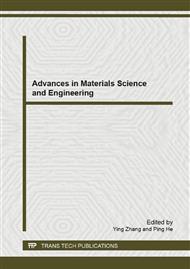p.374
p.379
p.385
p.391
p.398
p.403
p.407
p.414
p.420
A Study on Double Plus Chain Mechanism for Li-Ion Power Battery Formation Equipment
Abstract:
The automation level has a great influence on the consistency of batteries. By now, an improvement of formation process has proposed new requirements for the formation equipment. This paper brings forward the application of double plus chain mechanism to formation equipment. The chain running at a low speed, the batteries on it move quickly and smoothly. The stopper can stop them for some specific operations without blocking other battery packs. PLC cooperating with signal input and receiving units makes it easy to meet the control requirements. If process changes, we only need to adjust the location of detection devices and execution units. Thus, the control system is very flexible and adaptive.
Info:
Periodical:
Pages:
398-402
DOI:
Citation:
Online since:
January 2013
Keywords:
Price:
Сopyright:
© 2013 Trans Tech Publications Ltd. All Rights Reserved
Share:
Citation:


